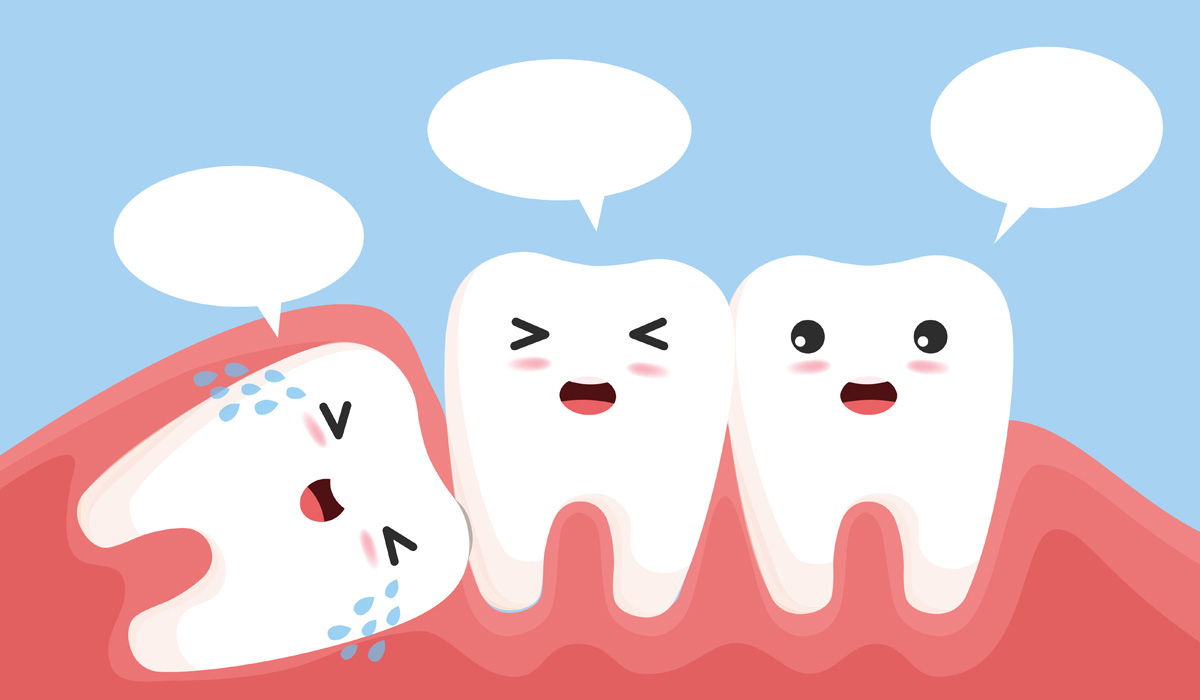Wisdom teeth are the four permanent teeth located at the ends of your upper and lower dental arches. They usually erupt or appear between the ages of 17 and 21, and their number can vary from patient to patient. Third molar extraction may be necessary if these wisdom teeth become impacted or cause overcrowding in the mouth.
Also called third molars, wisdom teeth are among the vestigial features of the human body. While we do not need them, being completely unnecessary and potentially painful are two separate things.
A lot of people will have to undergo wisdom teeth removal. It is a standard surgical procedure recommended to prevent dental problems from developing down the line.
Why Is Third Molar Extraction Done?
Wisdom teeth often cause problems or x-rays show they might do so in the future. In either case, they have to be taken out. The problems they can cause include jaw damage, inflamed gums, sinus issues, and damage to the neighboring teeth.
Not all dental professionals agree with the extraction of third molars that are asymptomatic or do not cause pain at the moment. However, there are no guarantees that future problems will not occur.
Symptom-free molars are also prone to disease, especially if there is not enough room for them, making them difficult to be reached and cleaned thoroughly. This is why wisdom teeth removal is often seen as a preventive procedure.
How Is Wisdom Teeth Removal Done?

The wisdom teeth removal surgery begins with administering anesthesia to numb the teeth and gums. The choice between local and general anesthesia will greatly depend on the complexity of your procedure or on your comfort level. Sedation dentistry is also worth exploring especially if you have dental anxiety.
The surgeon will create an incision in the gum tissue to expose the impacted tooth. A portion of bone tissue may also be removed to give adequate access to the tooth. Once the tooth is already visible, the surgeon will lift it from the socket. They may even decide to cut it in half, making the tooth much easier to be taken out. The procedure ends with cleaning and then stitching the surgical area.
What Is The Best Age To Have Wisdom Teeth Removal?
Age does not matter much in a wisdom teeth extraction procedure when the patient is already experiencing pain. But, the dental community’s guideline is within the 18-24 age group. This is usually the stage when the wisdom teeth get fully developed.
There are cases where the extraction is necessary before the age of 18. However, the soonest that extraction is safely possible is when the root has grown to about 2/3 of its full size.
Age 24 is usually seen as the ceiling point because fast healing from the operation is still possible. But beyond this point, wisdom teeth removal will get even more complicated. The roots of the wisdom teeth have already fully grown. Your healing will also take more time, exposing you to a higher risk of infection.
Are There Known Risks In Wisdom Teeth Removal?

Though the procedure is generally safe, a dry socket is a common complication of wisdom tooth removal. It is when the blood clot fails to develop, gets dislodged, or disappears before the wound has healed. This can happen three to five days after surgery.
A blood clot is essential following any surgery as this can protect the open wound. The underlying bone and nerves remain exposed when wisdom teeth are removed. This can cause severe pain in the socket as well as the rest of the side of your face.
Pain-Free Wisdom Teeth Removal For All Ages
The skills of your surgeon is just as crucial as early evaluation and treatment. They give the optimal result for the patient. Madison Dentistry has a team of board-certified surgeons embodying family-oriented dentistry, perfect for all ages. Our clinic is equipped with the latest technology to make your wisdom teeth removal as painless as possible.
Book a schedule with us today. We would be happy to discuss wisdom teeth removal with you.




